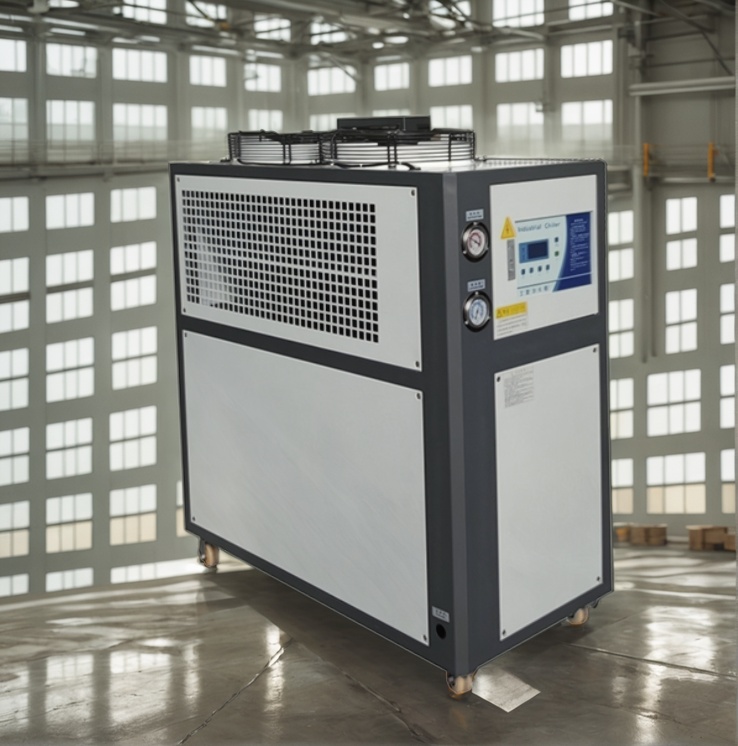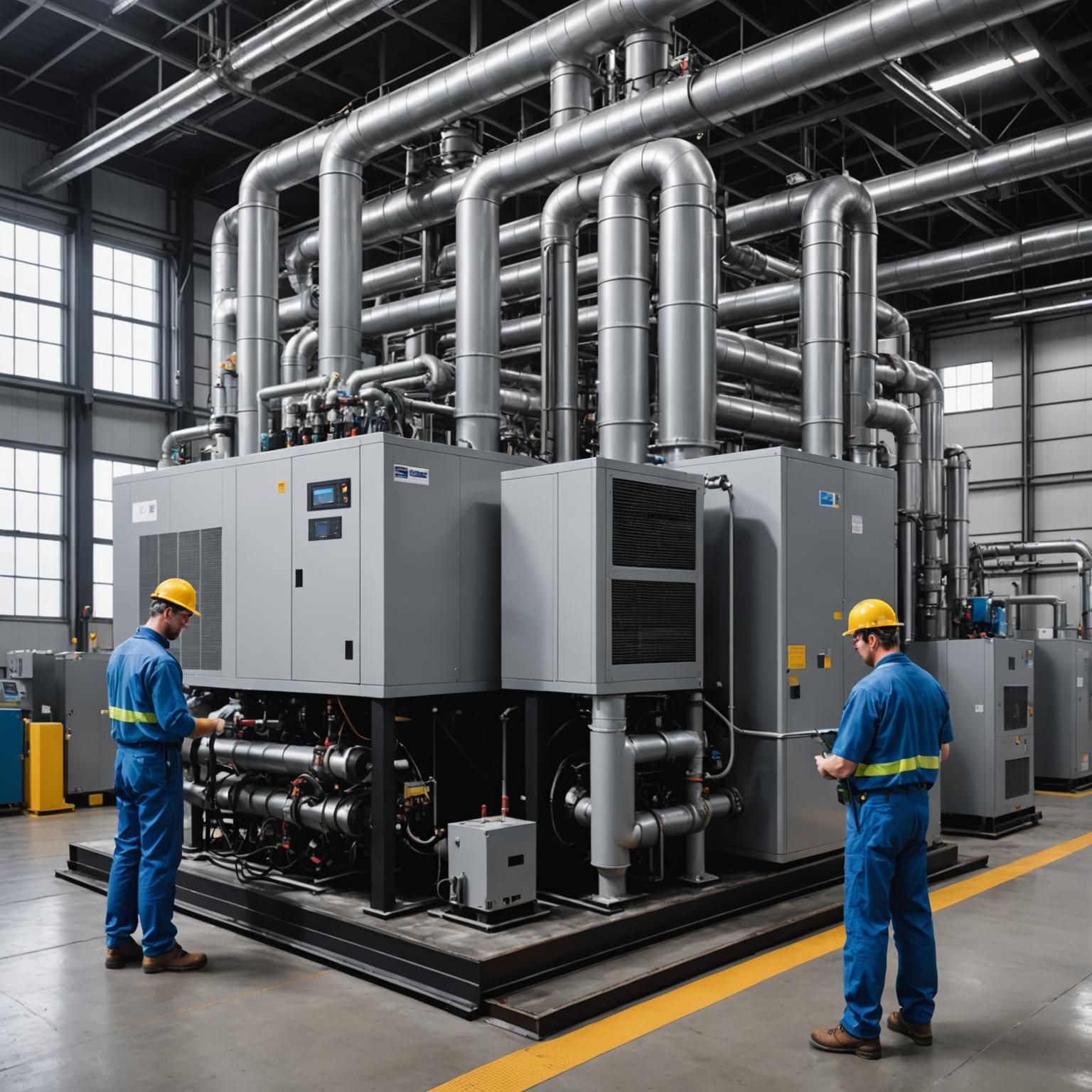In the world of modern manufacturing and high-tech processes, precise temperature control is not a luxury—it is an absolute necessity. At the heart of this crucial function is the Industrial Chiller, a powerful piece of equipment designed to remove heat from a process liquid and transfer it elsewhere. As industries constantly search for efficiency and reliability, the market for industrial chillers for sale continues to grow, offering a wide array of solutions tailored to specific needs. Understanding the technology, from its core components to the different cooling methodologies, is the first step toward making an informed investment that will protect critical equipment and ensure operational continuity.

The Backbone of Modern Production: Why an Industrial Chiller is Essential
An Industrial Chiller serves as the unseen workhorse across a vast spectrum of sectors. In the plastics industry, for example, it is essential for cooling hot plastic that is injected, blown, or extruded. For laser cutting and CNC machinery, it maintains the optimal operating temperature of the equipment, preventing overheating that can lead to costly damage and production downtime. Other critical applications include medical imaging, where MRI machines require constant cooling to function, and the food and beverage industry, where chillers are used in everything from breweries to dairies. Without effective process cooling, businesses face risks of product defects, reduced equipment lifespan, and complete operational halts. Therefore, a reliable chiller is not just a piece of machinery; it’s a strategic asset that safeguards product quality and profitability.
Choosing Your Cooling Method: Air-Cooled vs. Water Cooled Chiller Systems
When selecting a chiller, one of the most fundamental decisions is the method of heat rejection: air-cooled or water-cooled. Both systems perform the same primary function of removing heat via a refrigeration cycle, but they differ significantly in how they dissipate that heat into the environment. An air-cooled chiller uses ambient air, while a water cooled chiller uses a separate water source. The choice between them depends on factors like the facility’s location, available infrastructure, cooling capacity requirements, and long-term budget considerations.
The Versatility of Air-Cooled Systems
Air-cooled chillers dissipate heat using the surrounding air. They are equipped with condenser coils and high-performance fans that blow ambient air across the coils, transferring the heat from the refrigerant inside to the air outside. This design makes them a self-contained unit, which is one of their biggest advantages. Installation is simpler and typically less expensive, as they do not require a cooling tower, condenser water pumps, or the extensive piping that a water-cooled system needs. Modern air-cooled units often feature top-mounted fans for efficient heat dissipation and are ideal for facilities where water is scarce or where the added maintenance of a cooling tower is undesirable. Their all-in-one design offers flexibility and is a common choice for small to medium-sized applications.
The High Efficiency of a Water Cooled Chiller
A water cooled chiller operates by transferring heat from the refrigerant to water, which is then pumped to a cooling tower where the heat is finally rejected into the atmosphere through evaporation. Because water has a higher heat transfer coefficient than air, these systems are generally more energy-efficient than their air-cooled counterparts, especially in larger-capacity applications. This can lead to significant savings on electricity costs over the unit’s lifespan. A water cooled chiller is also typically quieter and can be installed indoors, protecting it from harsh weather conditions and extending its longevity. While the initial investment and infrastructure requirements are higher, their superior efficiency and performance make them the preferred choice for large industrial facilities and applications demanding stable, high-volume cooling.
Essential Features When Browsing Industrial Chillers for Sale
When you begin to evaluate different industrial chillers for sale, it is crucial to look beyond the basic cooling capacity. Modern units are sophisticated systems designed for performance, usability, and safety. A key feature is the digital control panel, which should offer a user-friendly interface for precision adjustments, real-time temperature monitoring, and system diagnostics. Easy-to-read pressure gauges are also vital for professionals to monitor the refrigeration cycle and ensure stable performance. Durability is another major consideration; look for units built with a heavy-duty steel casing to withstand demanding industrial environments. For facilities that require flexibility, portability features like reinforced caster wheels allow the unit to be moved easily without sacrificing stability during operation. Finally, advanced compressor technology ensures rapid, energy-efficient cooling, while built-in safety features like overheating protection and automatic shutdown protocols provide peace of mind and maximize uptime.
Selecting the Right Industrial Chiller for Your Needs
Making the right choice involves a careful analysis of your specific operational requirements. The first step is to accurately calculate your process heat load to determine the necessary cooling capacity (measured in tons or BTU/hr). Next, assess your facility’s environment. Do you have ample space with good ventilation for an air-cooled unit, or is an indoor installation necessary? Is a reliable water source available for a water cooled chiller? Your budget should account for both the initial purchase price and long-term operating costs, where the higher efficiency of a water-cooled system might offset its initial cost over time. Consulting with a cooling expert can help navigate these decisions and ensure you select a system that is perfectly sized and configured for your application.
A Strategic Investment in Efficiency and Reliability
Ultimately, selecting and installing the right cooling system is a strategic investment that directly impacts your operational efficiency, product quality, and bottom line. Whether your application is best served by a versatile air-cooled system or a highly efficient water-cooled unit, the decision deserves careful thought and research. By focusing on key features like advanced controls, durable construction, and robust safety mechanisms, you can secure an Industrial Chiller that will provide reliable and precise temperature management for years to come, solidifying the foundation of your production processes.

